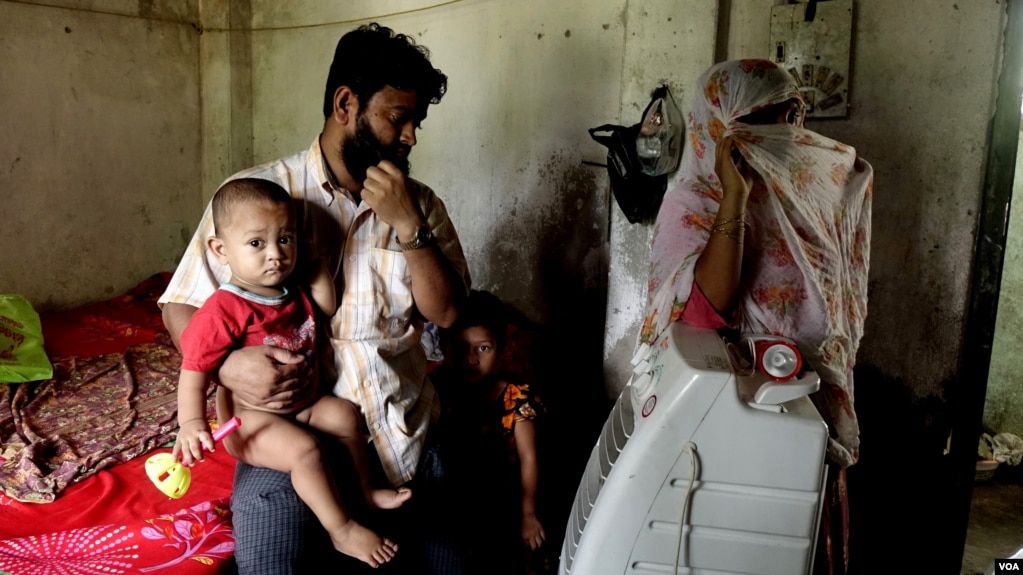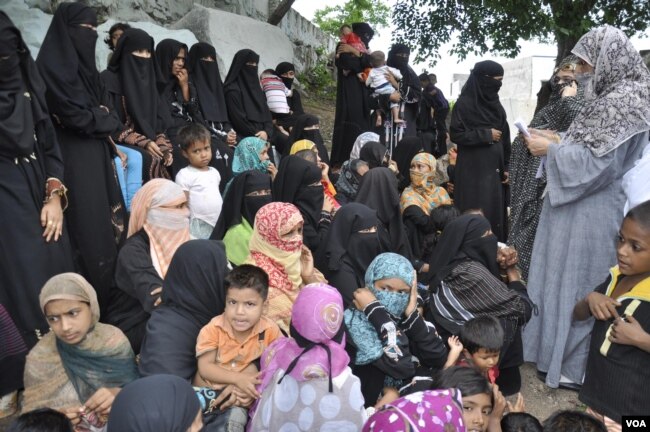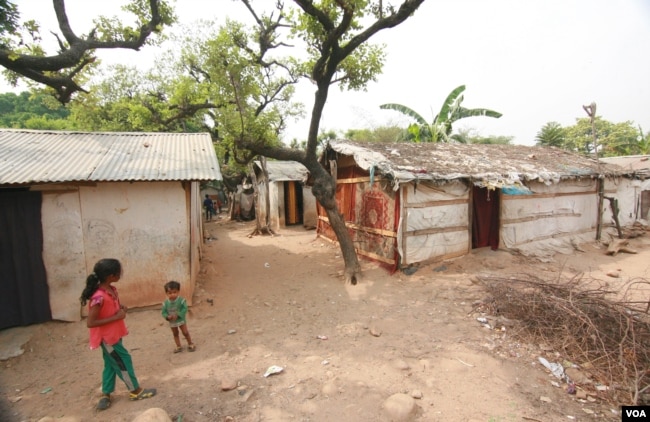
India’s Housing and Urban Affairs minister, Hardeep Singh Puri, said Wednesday the government would address the problem of housing of Rohingya refugees — signaling a potential change in the government’s policy toward the ethnic refugee community from Myanmar.
Fleeing violence and persecution in Myanmar, thousands of Rohingyas have entered India over the decades. The refugees do menial jobs for a living and live in decrepit shack colonies in many parts of the country.
“In a landmark decision,” India has decided to allot flats to “Rohingya refugees” in the Bakkarwala area of Delhi, where they will be provided with basic amenities and police protection, Puri, a leader and minister of the Bharatiya Janata Party- [BJP] led federal government, said in his tweet.
For decades, India has identified Rohingyas as “illegal immigrants,” not as refugees. But in his tweet, Puri called the Rohingyas in India “refugees,” surprising many.
The government revoked its decision hours after Puri tweeted Wednesday, with India’s Home Ministry denying on Twitter that it had issued any order to provide flats to the “Rohingya illegal foreigners.”
In another tweet, the Home Ministry said the Rohingya would be held in a detention center until they were deported to Myanmar. The section of the ministry that deals with the refugees refused to comment on the issue when asked by VOA why the government backtracked on the decision to provide housing to the Rohingyas.
Some local media reported the government made a U-turn on the decision because of protests from the VHP. Alok Kumar, the central working president of the VHP, said his organization was surprised by Puri’s statement.
“It is also shocking to find that Mr. Puri identified the Rohingyas as ‘refugees.’ The government of India consistently maintained that they are not refugees, but infiltrators,” Kumar said.
“The VHP urges the government of India to reconsider this issue and instead of providing the Rohingyas with housing, make arrangements to send them back and out of India.”
In social media, many right wing Hindu and BJP activists called the Rohingyas “terrorists” and said that they should not be treated as refugees. Saurabh Bhardwaj, the spokesperson of BJP’s rival Aam Aadmi Party, said in a tweet that the “people of Delhi will not allow” Rohingyas to settle down in the city.
It was estimated there were about 18,000 Rohingyas in India, and some 1,100 live in Delhi.
Since the Narendra Modi-led Hindu nationalist BJP formed the federal government in 2014, anti-Rohingya sentiment has been sweeping across India, with many Hindu groups demanding their expulsion from the country.
Following pressure from the Hindu groups, the BJP-led Indian government subsequently ordered every state to identify and detain all Rohingya Muslim refugees and deport them to Myanmar.
Pro-Hindutva groups accused Rohingya refugees of being associated with terrorism and other criminal activities.
New Delhi-based Supreme Court lawyer Tanveer Ahmed Mir said the charge that the Rohingya refugees are involved in terrorism in India is “baseless.”
“No government law enforcement agency has found any Rohingya being involved in subversive or terrorism-related activities. There is no UAPA case in which any Rohingya has been booked,” Mir told VOA, referring to the Unlawful Activities (Prevention) Act of 1967, which is frequently used to book people for terrorism-related activities.
Fear of deportation
Currently, about 1,000 Rohingya are imprisoned in different parts of the country after being charged with illegal entry into India. A few dozen of them also have been deported to Myanmar in the past four years.
Wednesday’s announcement by the Home Ministry about the plan to deport more Rohingyas to Myanmar has triggered a new panic among the refugees. Rohingyas had long been aware of India’s unwelcoming policy toward the community, and so the housing minister’s tweets about providing flats came as a surprise to them, said Delhi-based Rohingya activist Ali Johar.
“However, many of us were also aware that the government was in a plan to concentrate all of us into detention facilities for a long time. If that’s what is going to happen, it will be a nightmare for an already vulnerable genocide-survivor people. All Rohingyas are living in fear of detention and deportation,” Johar told VOA.
The Indian government “absolutely must stop arresting, detaining, and forcibly returning” Rohingya refugees back to Myanmar, where they face serious rights abuses at the hands of the military junta, Phil Robertson, deputy director of Human Rights Watch’s Asia division, told VOA.
“The Myanmar military has committed crimes against humanity and acts of genocide in Rakhine state, so it is inconceivable that any government would agree to put Rohingya refugees back into their hands. If India proceeds with the deportations, they will have on their hands the blood of any Rohingya sent back,” Robertson said.
“The global community must demand that India end these rights violating refoulements of refugees, and instead permit UNHCR to have full access to protect all Rohingya asylum seekers and refugees in India.”



![FILE - To escape a police crackdown and possible deportation, some Rohingya refugees are fleeing a colony in Jammu, north India, for some unknown destinations, last year [2021]. (Mir Imran/VOA)](https://gdb.voanews.com/01a10000-0aff-0242-6854-08da82dd0b42_w650_r0_s.jpg)